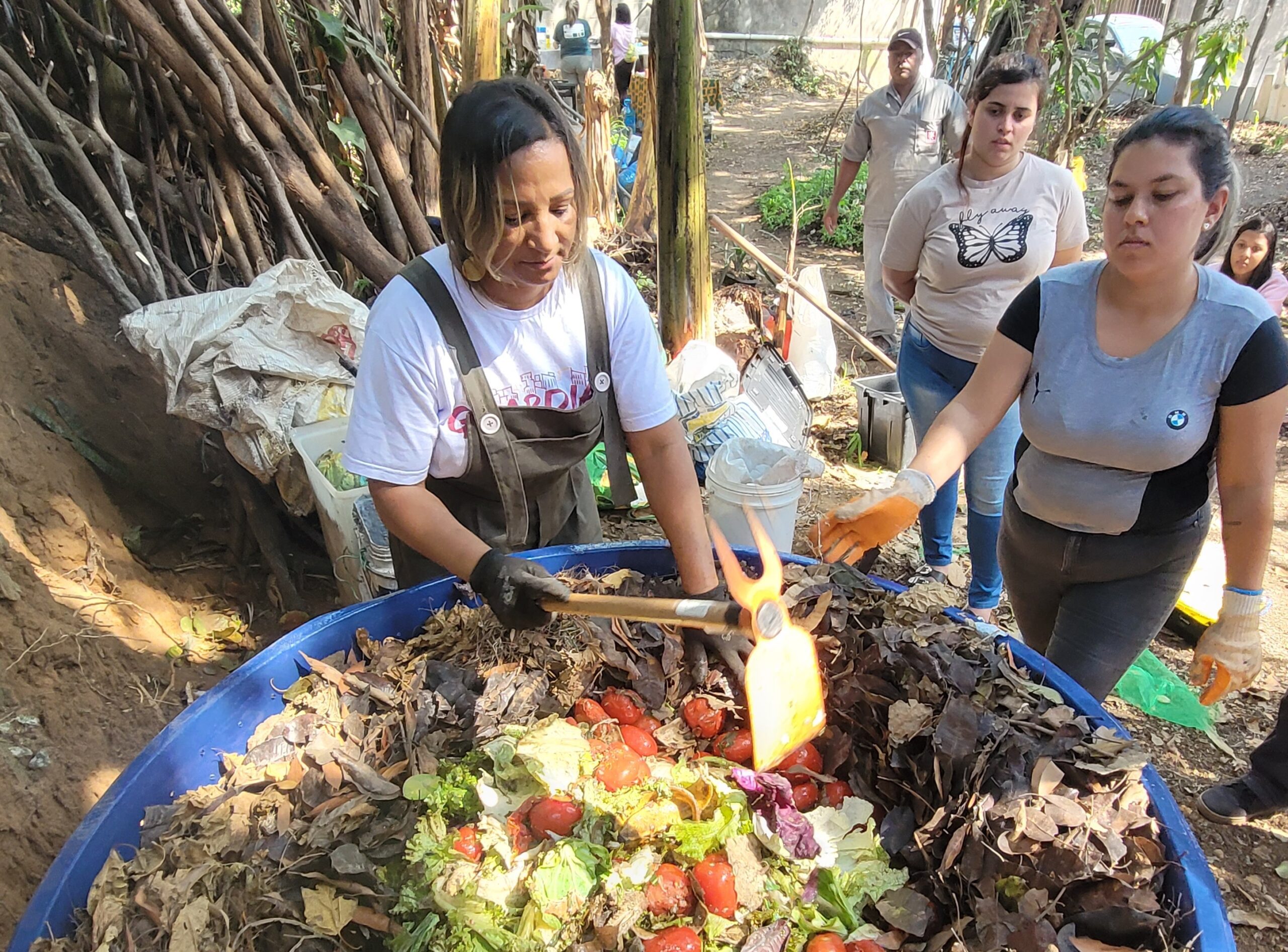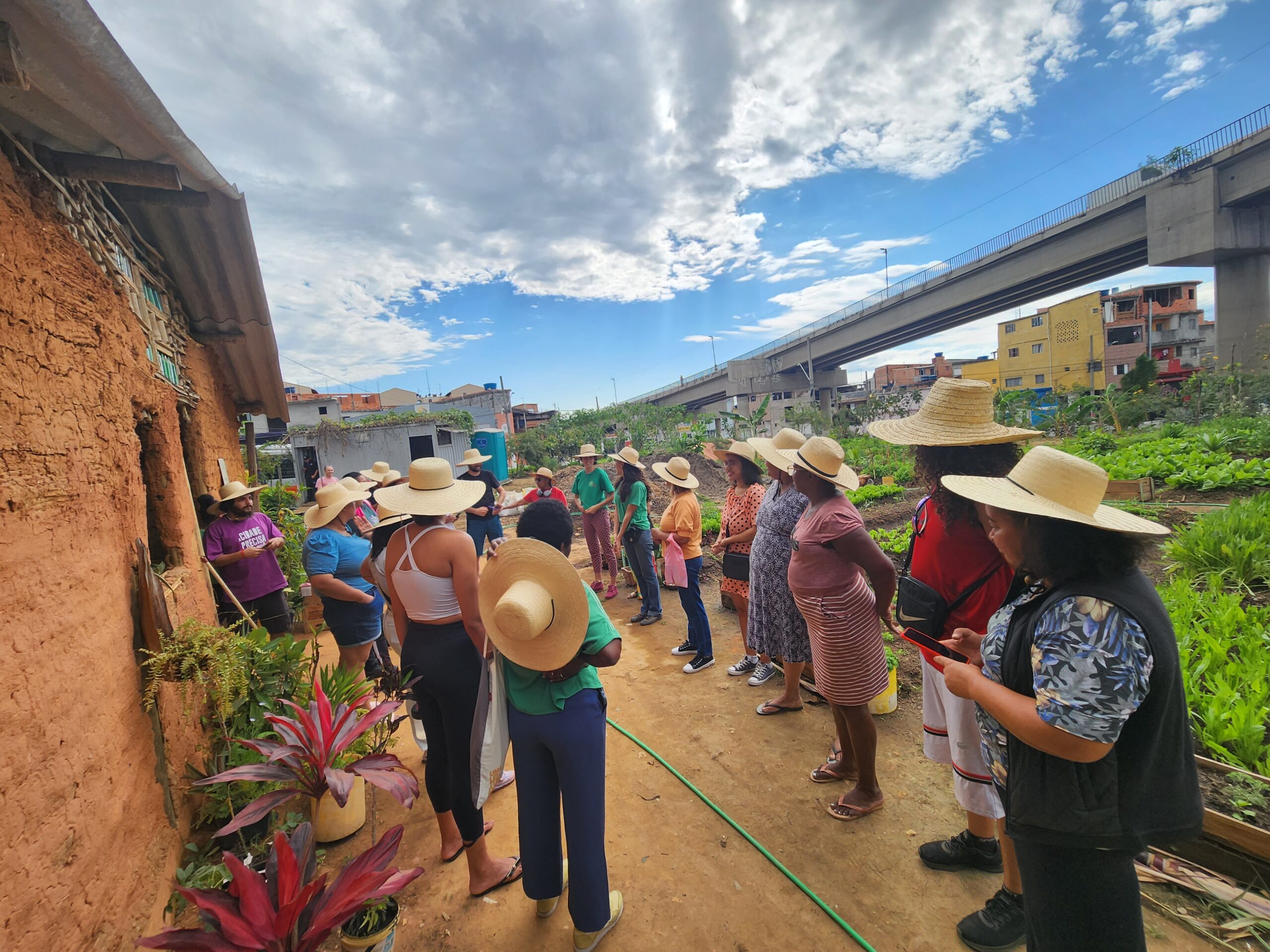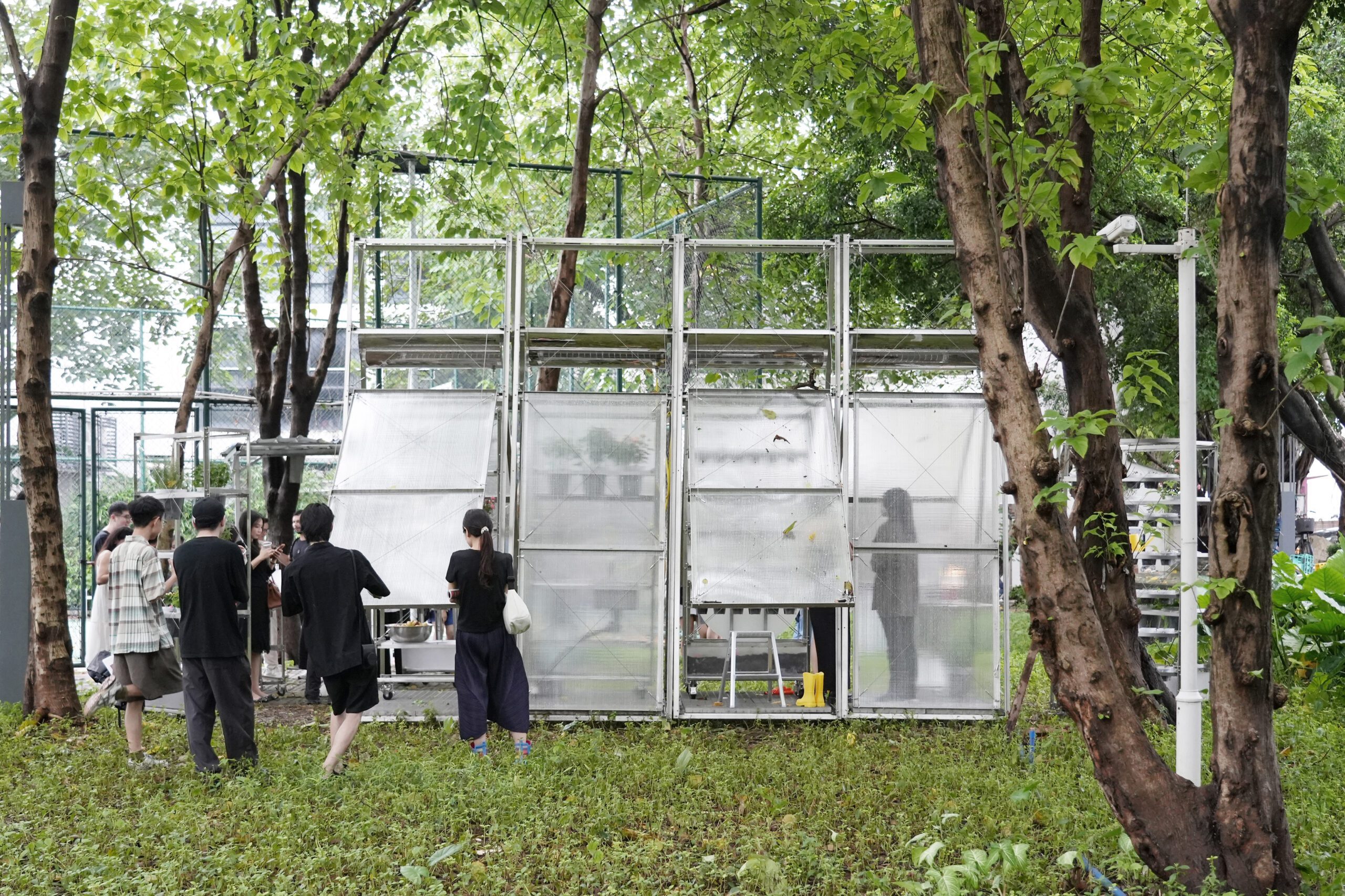The debate "Urban Agriculture: The Circularity of Food in the City" begins with a presentation of the Sampa + Rural program from the São Paulo City Hall's Department of Economic Development and Labor, and continues with the project "Your Greenhouse is Your Kitchen," from the Office for Roundtable, and representatives from the organizations Pé de Feijão and Comida do Amanhã, moderated by Vitória Leão. The debate highlights the relationship between urban agriculture and urban planning and management, revealing the flow of food in the city, considering the dimensions of proximity and circularity. Urban agriculture is not one, but diverse: food production within the city occurs in a capillary manner across territories, and therefore in different typologies, relationships, modes, and means. Growing food in the city dismantles the urban-rural paradigm and presents immense challenges, including land use, logistics, access to resources, and the intersectoral nature of the agenda.
The experiences present good practices in the stages of urban food system design, linked to production, marketing, acquisition, and use of food, thus inspiring the idea of cities based on agroecological food production, with responsible use of natural resources, respect for biodiversity, waste transformation, and democratic access to healthy and regular meals.
Victory Lion – CPDA/UFRRJ
Researcher and doctoral candidate in the Social Sciences Graduate Program in Development, Agriculture and Society (CPDA/UFRRJ). With a Master's degree in Applied Ecology from ESALQ/USP, she has specialized for over ten years in the analysis of family farming in Brazil and has extensive experience in studies and promoting public actions on urban and peri-urban agriculture in various Brazilian municipalities.
Lia Palm – Sampa + Rural
A social scientist from the University of São Paulo, she holds a master's degree in public policy and government management from the Getúlio Vargas Foundation. She serves as the Agriculture Coordinator at the Municipal Secretariat for Economic Development and Labor and is a Public Policy and Government Management Analyst (APPGG), a tenured position at the São Paulo City Hall. Since 2019, she has been working on urban and peri-urban agriculture as part of the management team of the Ligue os Pontos Project. In early 2022, she expanded her work to support urban and peri-urban agriculture in the city of São Paulo, becoming the head of the Municipal Agriculture Coordination Office and later the Food and Nutrition Security Coordination Office.
Roberta Curan – Food of Tomorrow
She holds a Master's degree in Applied Ecology and a degree in Environmental Engineering. She works at the Food of Tomorrow Institute as the Intelligence and Knowledge Production Manager, where she coordinates and develops research, policy papers, studies, and general content on sustainable food systems. Her work in the NGO sector parallels her academic research; she is currently a doctoral researcher at the Luiz de Queiroz College of Agriculture at the University of São Paulo (USP), focusing on sustainable food systems and food policy.
Luisa Haddad
He leads Pé de Feijão, an impactful business that promotes experiences that delight, welcome, and support people on their journeys to an increasingly healthy and sustainable lifestyle. Using urban gardens, food, conscious consumption, and composting as a platform to democratize information about food and the environment, demonstrating that the path to better eating can be a practical, enjoyable, and transformative experience. His work focuses on how information can lead to changes in eating and environmental behavior and the regeneration of spaces.
Leyuan Li – Office For Roundtable
Chinese architect, educator, and researcher whose professional and academic work focuses on indoor and urban environments in the articulation of spaces and societies. He has worked internationally in architecture, working at OMA, SOM, and the Affordable Housing Lab. He is the founder of Office for Roundtable, a design collective that explores different forms and events of sharing.
Free
Registration:
Registrations must be made here.
Selection will be made in order of registration.
Registration will be open until the start of the activity, on site, as long as there are spaces available.




